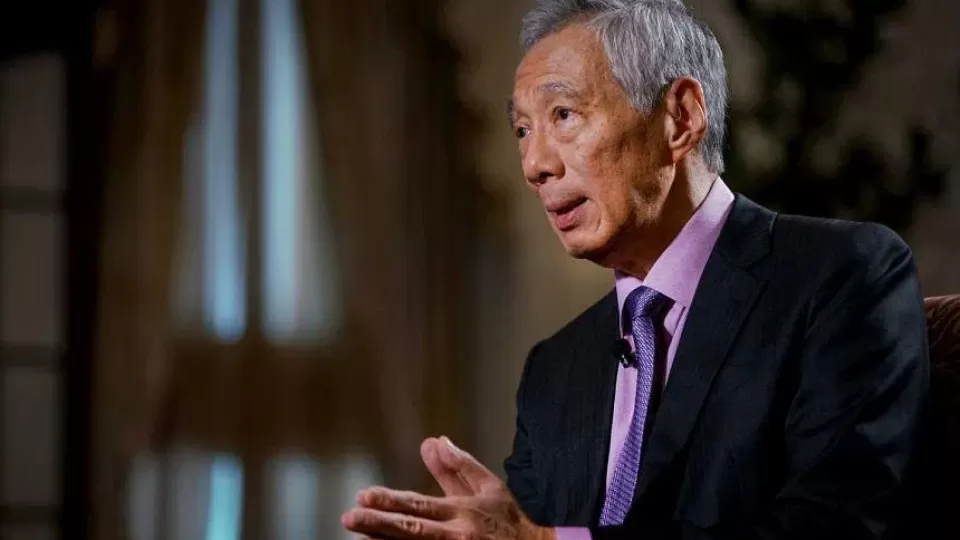March 27, 2023
SINGAPORE – Political issues between Asean and China will need to be worked on to pave the way for further progress on economic cooperation, said Prime Minister Lee Hsien Loong.
He cited as an example the code of conduct on the South China Sea – negotiations over which have been stalled for years – as something that was not easy to work out, but which Singapore hopes further progress will be made on.
In an interview with broadcaster China Central Television that aired on Friday, PM Lee added that accommodating China’s rise on the global stage required statesmanship and give-and-take by all parties.
Other countries must be able to accept that China today is not what China used to be, he said.
“At the same time, China must also be conscious that the arrangements which worked when you were much smaller… some of those concessions need to be reconsidered, and China has to be able to recalibrate its position in the world.”
This is not easy for both sides, he said. “But I think it is absolutely essential to do, because the world cannot afford a conflict between China and the rest of the world, and in particular between China and the United States.”
PM Lee’s hour-long interview touched on Singapore-China relations, Singapore’s foreign policy, and China’s rise in the global arena. A full transcript was released to the media by the Prime Minister’s Office.
Host Esther Zou asked what role Singapore can play in upgrading the China-Asean Free Trade Area. Negotiations for the upgrade began in November 2022.
PM Lee said Singapore, as one of the smallest of Asean’s 10 member states, has a “modest conception” of its role in the grouping. “But we will participate in it fully and try to help it to move forward.”
But economic cooperation between Asean and China also depends on the overall relationship, he said. There are political and security issues between the two parties, and problems that need to be worked on.
“The more progress we can make working on these problems, I think the easier it will be for us to make further progress on economic cooperation,” said PM Lee.
He cited the example of the code of conduct for the South China Sea, which is meant to provide guidelines to manage conflict in the disputed area. China claims almost the entire waterway, but there are competing claims from Brunei, Malaysia, the Philippines, Vietnam and Taiwan.
“If we can make more progress on that and manage the South China Sea issue in a way which respects the interests of both sides and all countries big and small, I think it makes it much easier for economic cooperation to go much further,” said PM Lee.
PM Lee was also asked for his vision for the relationship between China and the United States. Both countries are tussling over trade, technology and Taiwan. The latest object of conflict was popular Chinese app TikTok, which Washington argues is a national security threat and wants banned.
“I think you have to take things step by step, and stabilise the relations and then gradually build trust, and gradually try to move forward,” he said.
Referencing a November meeting in Bali between Chinese President Xi Jinping and US President Joe Biden, he said he hopes the leadership can build on the contact, and the overall situation can be stable. “And then, gradually, you can improve things. But it will take time. It is not easy and there are political pressures on both sides.”
The current tense relationship between the US and China means “it is not so easy” for both to work together, even when the opportunity arises, such as in pandemic cooperation or climate change, he added.
As for Singapore’s role in the current global system, Mr Lee said Singapore is a small country that does not determine world affairs. It plays its part by standing up for principles, such as territorial integrity, when Ukraine was invaded in 2022.
“It is not that we are hostile to Russia, or are Russia’s enemy, but we cannot stand for such conduct,” he said, adding that this has been Singapore’s position in similar situations, including when the US invaded Grenada.
Singapore makes friends with countries, big and small, said PM Lee. “We go on principles rather than sides, so we have to follow the principle and be consistent and stand by it.”
Singapore also articulates more explicitly what is at stake in developing the relationship with China, in maintaining peace, stability and prosperity in this part of the world, he said.
“We hope that by speaking up that way, we can exercise some modest influence to encourage countries to think about the opportunities and risks in the international scene, and work together to take advantage of one and avoid the other.”

